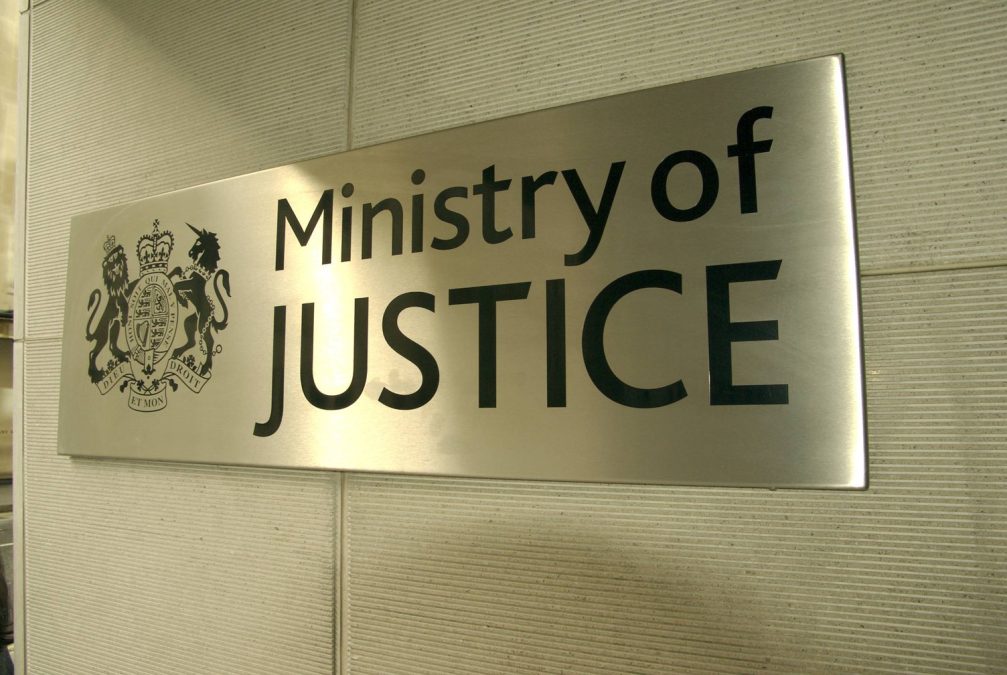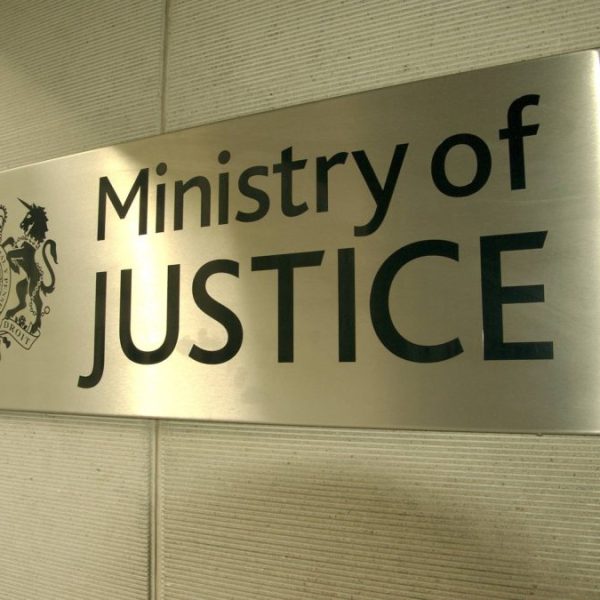Association of Costs Lawyers Manchester Annual Conference Enjoyable day out of the office last Friday attending the Association of Costs Lawyers Manchester Annual Conference. As ever it was lovely to catch up with so many old friends and meet some new ones. There was an excellent line-up of speakers covering a range of key costs issues which continue to shape costs law in the UK. Thank you to everyone involved!
The King’s Bench Guide – April 2025
Court and tribunal fees updates: April 2025 In the recent Guide to the working practices of the King’s Bench Division within the Royal Courts of Justice prepared by Senior Master Cook, the complexities of cost budgeting for high-value personal injury and clinical negligence claims in the King’s Bench Division are meticulously unpacked. This comprehensive document serves as a beacon for legal professionals navigating the often-turbulent waters of costs management hearings. At its core, the guidance emphasises the differences between costs management and the traditional detailed assessment process and urges a more holistic approach to determining costs budgets. The court’s focus is on proportionality, weighing factors such as the sums in issue and the litigation’s complexity. Reasonableness is also a factor. This nuanced approach at the costs management stage ensures that costs are not only justified but also aligned with the case’s demands. The Court, at this point in the claim, is not permitted to fix or approve hourly rates, which are often a contentious issue, however, it may scrutinise their reasonableness within the proposed budget’s context. The issue of fixing hourly rates is, however, reserved to detailed assessment. Delegation of work emerges as an important point, with the guidance advocating for the involvement of junior fee earners in tasks that do not necessitate senior expertise. This strategy not only encourages parties to manage costs effectively but also aligns with the court’s expectation of costs budgets being both reasonable and, more importantly, proportionate. Counsels’ fees, particularly the involvement of two counsel in substantial value claims, are also examined. The guidance encourages a balanced distribution of work between junior and leading counsel, as well as advising on the impact on the time allowed for senior fee earners, ensuring that costs are justified and proportionate. The document also delves into the various phases of work, from issue/statements of case to trial preparation and ADR/settlement. The Guide also gives advice on how to approach the budgeting of costs in each phase, providing a roadmap for legal professionals to follow. That guidance is summarised below: Phases 1. Issue and Statements of Case In many cases, this phase will have been largely completed by the time of the first Costs and Case Management Conference (CCMC). However, it is common for the schedule of loss to require extensive further work at this stage. The court considers the anticipated costs of counsel, typically junior counsel, and/or solicitor for drafting complex schedules involving calculations such as pension loss or loss of earnings. 2. Disclosure The nature and extent of documents caught by disclosure are highly case-sensitive. Ongoing case manager assessments may require careful consideration, and whether or not the delegation of this work is appropriate in the particular circumstances of the case. Solicitors are expected to maintain a running electronic bundle of documents, which can be edited and annotated to form the basis of any trial bundle. Administrative tasks like assembling and paginating bundles are generally not separately chargeable. 3. Witness Statements The first draft of a witness statement is generally expected to be undertaken by lower grade fee earners, such as Grade C solicitors and legal executives. Witness statements should be drafted in the witness’s own words. The involvement of higher-level senior fee earners in taking or checking the witness statement depends on the complexity and value of the case. 4. Experts The court assumes that there will be a dispute between experts up to and including trial. If there is no substantial dispute following service of reports or joint statements, this may constitute a good reason for departing from the budget at detailed assessment. The court determines a reasonable and proportionate budget for expert fees, which may differ from the amount requested by the expert. Fees charged by experts instructed by the NHSLA or insurers may be less due to their greater negotiating power. Consultations with experts can often be conducted via video link to avoid travel expenses. In-person attendance may be justified in cases requiring close scrutiny of scans or x-rays, such as clinical negligence claims. 5. Costs of PTR For the majority of cases in the King’s Bench Division (KBD), a Pre-Trial Review (PTR) is not considered necessary and will not be ordered. In such instances, costs of 2 to 3 hours are generally allowed to address issues related to listing and associated matters, along with a listing fee where appropriate. 6. Trial Preparation Assembling and paginating trial bundles are administrative tasks generally included within the hourly rate of fee earners. The necessity of a pre-trial conference is case-sensitive and depends on the extent of allowance made for other conferences and consultations. Brief fees consist of two elements: the work counsel will put in on the brief and the fact that counsel has been booked for the trial. The court envisages hypothetical counsel capable of conducting the case effectively without demanding high fees. 7. Trial The court may not determine the reasonableness of expert attendance at trial during the CCMC. Budgets should provide for attendance based on reasonable assumptions, which can be adjusted later. The seniority of the fee earner attending trial may be questioned, but it may not be reasonable for a senior solicitor to attend throughout a trial. The court generally allows for 7-8 hours of work per day for a solicitor’s attendance, including meetings before and after court and travel time. 8. ADR/Settlement Joint Settlement Meetings (JSM): there is usually no objection to an allowance for a JSM, even if one or other party thinks such a meeting is unlikely to be required (unless it is clear that one will not appropriate). A JSM can be budgeted for on the assumption that one will take place and the order should be clear as to whether or not attendance at a JSM (or, in exceptional cases, mediation) has been assumed. If a JSM is not required, then that is likely to be seen as a good reason to depart downwards from a budget allowance. High-value claims, in particular, may require a significant amount
Determining Success Fees in Personal Injury Cases
Determining Success Fees in Personal Injury Cases In a recent judgement, the court has provided significant clarity on the right to deduct a success fee from claimants’ damages. Solicitors would do well to check their agreements with their clients. Summary of Judgement The case in question, SJ (a minor suing by his mother and Litigation Friend AJ) v DGJ Tanner t/a Sopley Farm [2025] EWCC 17, involved a dispute over the correct way to calculate a success fee in a personal injury case. The court ruled that solicitors do not have an automatic entitlement to 25% of the damages, a decision that underscores the importance of transparent and fair cost calculations in legal proceedings. The judgement highlighted several key points: Costs Padding: District Judge Lumb criticised the claimant solicitors for a considerable amount of duplication of work, which he described as ‘costs padding’. The firm incurred almost £30,000 in costs for a claim that settled for £3,600. Unlawful Contingency Fee: The judge expressed concern that the solicitors seemed to know at the time of instruction that they would deduct the maximum 25% from the client’s damages, which he described as an unlawful contingency fee. Fixed Costs Regime: The firm argued that it is not possible to process this type of claim within the fixed costs regime at a profit while providing high-quality service to clients. Implications for Solicitors: This judgement serves as a reminder for solicitors to ensure that their cost agreements are fair and transparent. The court’s decision underscores the importance of clear and transparent cost calculations, ensuring that clients are not unfairly charged, and is particularly relevant for personal injury cases, where success fees can significantly impact the final settlement. As legal professionals, we should take note of this ruling and adjust our practices accordingly to ensure compliance and maintain client trust. The full Judgement can be read on The National Archives website.
Lessons from the Bench: Inside the Costs Budgeting Process
Lessons from the Bench: Inside the Costs Budgeting Process As costs professionals, we often see significant disparities between parties’ budgets – something highlighted in the recent case of Atlantic Ways Holding SA v Freetown Terminal Holding Ltd [2025] EWHC 674 (Ch), where Master Brightwell was tasked with budgeting the defendant’s costs. He began by stating: “It falls to me now to fix the defendant’s budget for these proceedings. This is a case where there is quite a disparity between the (agreed) budget for the claimant (£449,000) and the budget for the defendant (£808,000). In light of that, there has been something of a root and branch opposition by the claimant to the defendant’s budget. It may be appropriate therefore for me to set out some of the general principles which the parties’ submissions were based upon, even though they quite appropriately did not trawl through the authorities and the principles relevant to costs management.” This set out his methodical approach to addressing this disparity and his taking into account comments made by Mr Justice Constable in GS Woodland Court GP 1 Ltd v RGCM Ltd [2025] EWHC 285 (TCC). Particularly insightful was the Master’s granular phase-by-phase approach to each element, considering matters like potential fee-earner duplication, assumptions about responsive witness statements, and the proportionality of having multiple fee-earners attending trial. What this demonstrates is that while budgeting remains somewhat unpredictable, Masters bring significant commercial awareness to the process. Those preparing budgets need robust justifications for phases significantly exceeding comparative norms. The general principles highlighted by Master Brightwell were: The court sets a budget, not conducting a detailed assessment in advance – though recognising it won’t later depart from it without good reason. The court considers whether budgeted costs fall within a reasonable and proportionate range – costs may be at the outer limit but still acceptable. CPR 44.3(5) is the reference point for the court’s assessment of proportionality, with value and complexity being the main factors. When approving a party’s budget, the court must have in its mind what would be allowed at a detailed assessment of costs claimed on the standard basis. Proportionality trumps reasonableness – as CPR 44.3(2) clearly states, reasonable but disproportionate costs will be reduced. Direct budget comparisons should be avoided, though one party’s budget inevitably influences consideration of the other’s. This case also highlighted the ongoing tension between guideline rates and actual market rates. Master Brightwell noted both parties exceeded guideline rates by 20-30% and referenced Constable J’s comments in GS Woodland Court that London 1 rates would be “the high point” for this type of commercial matter.
Understanding the Validity of Part 36 Offers
Understanding the Validity of Part 36 Offers In a recent High Court ruling, a Part 36 offer was deemed valid despite the failure of the claimant to specify the “relevant period” correctly. This decision underscores the importance of understanding the nuances of Part 36 offers and their historical context. In Henderson & Jones Ltd v Salica Investments Ltd & Ors [2025] EWHC 838 (Comm), Mr Justice Calver addressed significant issues regarding the enforcement of financial agreements and the interpretation of contractual terms. The case centred around a dispute involving complex financial arrangements and the obligations of the parties under these agreements. It involved a claimant who made an offer that did not explicitly state the 21-day period required by CPR Part 36.5(1)(c). Despite this oversight, Mr Justice Calver found the offer compliant, highlighting that the history and context of the offer played a crucial role in its interpretation. The court also emphasised that the intent behind the offer and the surrounding circumstances were sufficient to uphold its validity. This case serves as a reminder that while the technical aspects of drafting offers are crucial, the courts may also consider the broader context and intent behind the offer. The decision demonstrates a willingness to uphold the validity of offers when the intent and context are clear, even if there are minor procedural errors. As legal professionals, we should take note of this ruling and ensure that Part 36 offers are drafted with care and precision to meet all current procedural requirements.
UK court and tribunal fees changes : April 2025
Court and tribunal fees: updates from April 2025 On April 1, 2025, the Ministry of Justice announced plans to increase 171 court and tribunal fees, pending parliamentary approval. The government intends for the changes to go live from April 8, 2025, for applications received by courts or tribunals on or after that date. Until then, the current fees will continue to apply. Historically, the Ministry has adjusted fees to match inflation, ensuring that the costs of HMCTS services are partially covered by users who can afford it, while minimizing taxpayer burden. This year, most fees will rise by 3.2%, reflecting CPI changes from March 2023 to March 2024. Some fees will see a 13.5% increase to account for inflation backdated to March 2022. Additionally, twenty-four fees will be reduced to align with their actual costs. The new fee structure is set to take effect from April 8, 2025, for applications received on or after this date. Until then, current fees will apply. The Help with Fees remissions scheme remains available for those unable to afford these fees. For more details on the fee changes, visit GOV.UK.
“Wagatha Christie” Costs Budget Challenge
Following the high-profile 2022 libel case between Rebekah Vardy and Coleen Rooney, the legal battle continues with a new appeal focusing on costs budgeting practices.
DKH Retail Ltd & Ors v City Football Group Ltd [2024] EWHC 3231 (Ch)
DKH Retail Ltd & Ors v City Football Group Ltd [2024] EWHC 3231 (Ch) The High Court’s recent pre-trial review judgment marks a pivotal shift in both trademark disputes and Alternative Dispute Resolution (ADR). By ordering mandatory mediation between Superdry and Manchester City FC, Mr Justice Miles provides crucial guidance on the October 2024 CPR reforms. The judgment addresses when courts should mandate ADR, even where parties insist on judicial determination. As the court emphasised: “bringing the parties together through mediation can overcome an entrenched reluctance to negotiate, even where sincere.” Three key principles emerge: Commercial complexity is not a barrier to mediation: The court found that even complex IP disputes benefit from mediation’s flexible solutions. This case involved branding on Manchester City’s kit featuring “Super” and “Dry” – potentially infringing Superdry’s trademark or representing Asahi Super “Dry” 0.0% lager sponsorship. ‘Need for judicial determination’ carries less weight post-CPR reforms: Parties often benefit from solutions beyond binary court outcomes. The court’s order to disclose the City Football Group-Asahi contract emphasised transparency in mediation. Timing of mediation matters: Well-defined positions through pleadings and witness statements can enhance mediation prospects. A clear understanding of each party’s stance enables exploration of flexible solutions. The success of the ordered mediation, confirmed in the judgment’s postscript, validates the court’s robust approach under the revised CPR framework: CPR 1.4’s express power to order ADR. CPR 3.1’s enhanced case management powers. CPR 29.2(1A)’s requirement to actively consider ordering ADR. This judgment guides practitioners through the new ADR landscape in commercial disputes.
Guideline Hourly Rates in Complex Commercial Litigation
Judge Awards Hourly Rates Significantly in Excess of the Guideline Hourly Rates in Complex Commercial Litigation In a recent decision, the Court of Appeal has affirmed the validity of retrospective Conditional Fee Agreements (CFAs) in the case of Singh & Ors v Ingram [2025] EWCA Civ 264. This ruling compels the paying party to honour the agreement, even if it was established post-commencement of the legal work. The dispute centred on the legitimacy of a CFA agreed upon after the legal work had already begun. The paying party contended that the CFA was invalid due to purported regulatory breaches by the solicitors. However, the Court determined that the clients were fully informed and content with the agreement, and that the alleged breaches did not compromise its validity. The Court was sceptical of the argument that alleged regulatory breaches by the receiving party’s solicitors provided grounds for the paying party to refuse payment. The clients were satisfied and understood the agreement. The Court also dismissed the traditional distinction between barristers and solicitors, affirming that solicitors bear just as much responsibility as counsel for the outcome of the litigation.
Court of Appeal Upholds Retrospective Conditional Fee Agreement
Court of Appeal Upholds Retrospective Conditional Fee Agreement A recent costs judgment in the case of 𝘔𝘪𝘤𝘶𝘭𝘢 𝘷 𝘙𝘰𝘮𝘢𝘯𝘪𝘢 [2024] 𝘌𝘞𝘏𝘊 3566 (𝘚𝘊𝘊𝘖), has established a precedent by allowing the largest ever departure from guideline hourly rates (GHR) in commercial litigation. Costs Judge Leonard approved rates of £700 per hour for grade A fee earners, £500 for grade B, £380 for grade C, and £200 for grade D. The judge firmly rejected arguments that standard rates should apply, dismissing the traditional distinction between barristers and solicitors in major litigation. He stated, “solicitors bore just as much responsibility as counsel for the outcome” and had “the same duty to understand and address the issues, both factual and legal.” The case stems from a 2013 arbitration award by the International Centre for Settlement of Investment Disputes, concerning investments in food production in Romania prior to its EU accession. With a dispute value of £182m, it raised significant issues around conflicts between European competition law and bilateral investment treaties, eventually reaching the UK Supreme Court in 2020. The paying party had argued for rates at just 10% above the 2010 Guideline rates. However, Judge Leonard concluded this case was “at the top end of the scale, even for City of London commercial litigation” and that guideline rates were “becoming quite obviously of less and less value as a starting point.” This ruling sets valuable precedent for firms handling sophisticated disputes and acknowledges that high-stakes cases require premium expertise. It confirms that GHR are “necessarily of limited assistance” in such matters, with Civil Procedure Rule 44.3 (assessment of costs on the standard basis) providing a more appropriate starting point. This decision provides important leverage when justifying premium rates that reflect the true value and responsibility involved in high-value international disputes.









